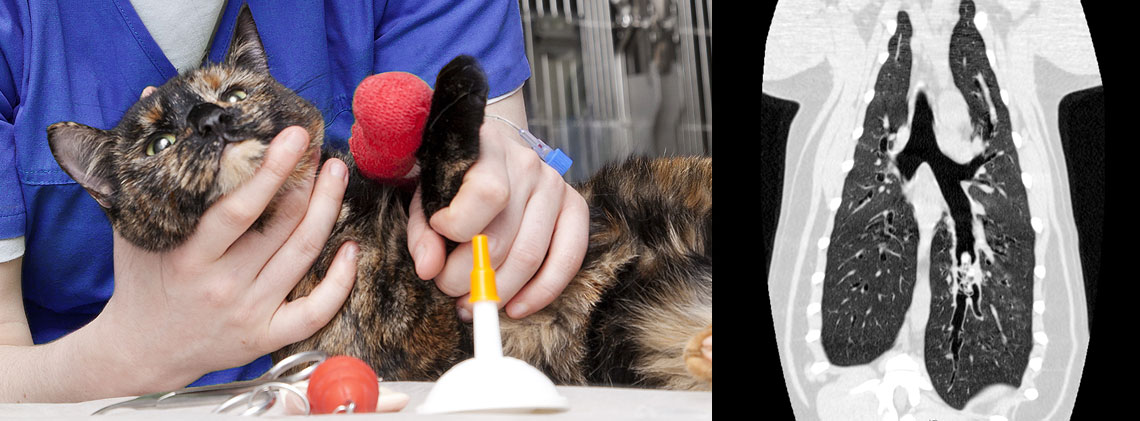
Internal Medicine
The internal medicine team at Southfields Veterinary Specialists is comprised of board-certified internal medicine Specialists and a team of highly qualified nurses. Caring and responsive, our internal medicine Specialists possess advanced training that lets them diagnose and treat many diseases.
When a patient is presented to them, a comprehensive investigation of the presenting complaints will be performed. Our team is dedicated to improving the health and well-being of our patients and provides 24/7 care for patients requiring hospitalisation. In addition, our entire team of Specialists in various disciplines routinely collaborate on challenging cases to ensure the most complete care.
Like people, animals can develop a variety of illnesses requiring the skilled expertise of a knowledgeable, board-certified internal medicine Specialist. An internal medicine Specialist is a licensed veterinarian who has obtained intensive, additional training in understanding how your pet’s internal body systems function and in diagnosing and treating the many serious diseases that can affect the health of those systems. They have greater knowledge and experience in the management of complicated, uncommon and rare medical conditions of dogs and cats. They are trained in the use of advanced diagnostic and therapeutic equipment, such as endoscopy. Thanks to better health care, more and more pets are living longer lives. As a result, an increasing number of older pets, just like older people, are coping with multiple disease states that can be very difficult to manage. Our internal medicine Specialists are also especially prepared to care for pets that may be facing multiple health problems at the same time.
In the field of small animal internal medicine, many body systems are evaluated. The following list represents some of the common diseases diagnosed and treated by our internal medicine service:
- Endocrine disorders – Overproduction or a lack of production of certain hormones leads to common diseases such as Cushing’s disease, Diabetes Mellitus, and Hyperparathyroidism and correct management can be challenging.
- Gastro-intestinal diseases – Endoscopy with biopsies can be performed to diagnose diseases such as inflammatory bowel disease or gastro-intestinal lymphoma.
- Urinary diseases – Cystoscopy and imaging studies can be performed to diagnose reasons for incontinence or abnormal urination. Renal failure, protein losing disorders and bladder stones are also managed.
- Hepatic diseases – Imaging and biopsies are often needed to define a treatment plan for different liver diseases.
- Infectious diseases – Resistant bacterial infections and tick-borne diseases are commonly treated.
- Immune-mediated diseases – Immune-mediated haemolytic anaemia, thrombocytopenia, and polyarthropathy often require intensive care and thorough investigation.
- Respiratory diseases – Chronic nasal discharge is a common problem requiring advanced imaging and rhinoscopy for definitive diagnosis.
- Pancreatic diseases – Acute pancreatitis requires rapid diagnosis, intensive care and monitoring.